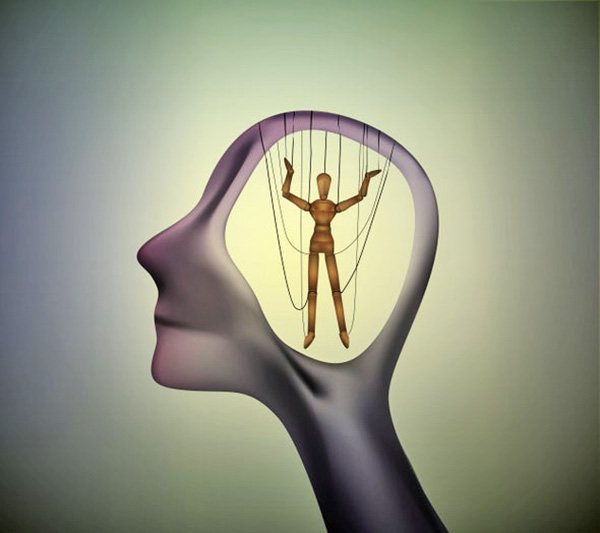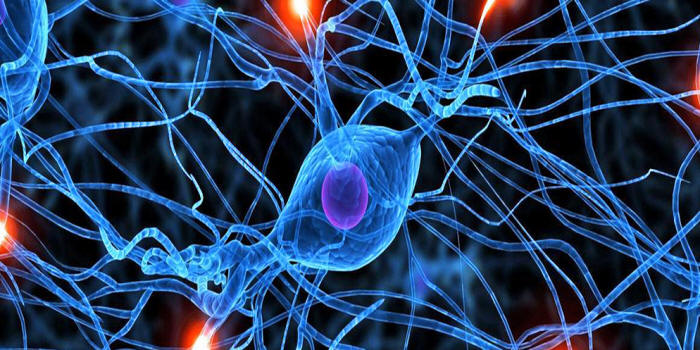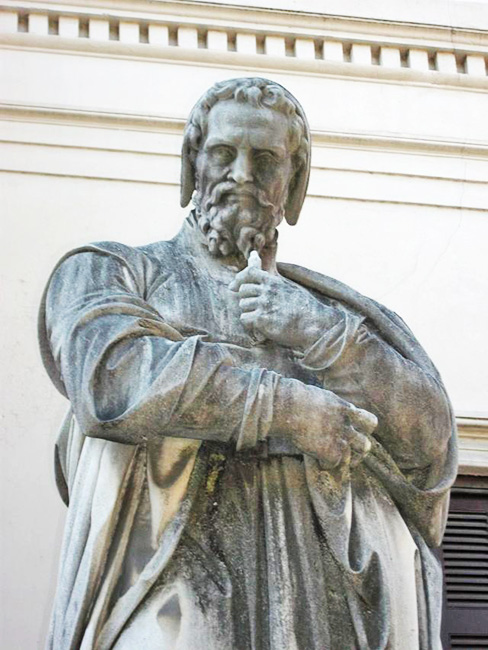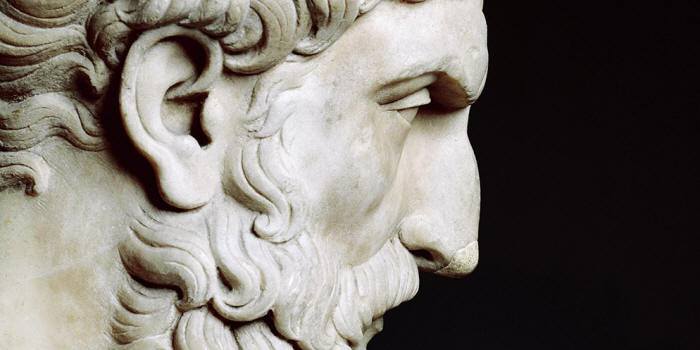|

by plato
May 11, 2021
from
ClassicalWisdom Website

It quickly became a spirited debate… after all, there is a lot on
the line and it's certainly not a point to be conceded without a
fight.
We were discussing the concept of
free will… and whether we have it…
or not.
My interlocutor was steadfast and impassioned.
No, he said. None at
all. Zero free will...
He was quick to quote
others.
"The sciences have
grown steadily bolder in their claim that all human behavior can
be explained through the clockwork laws of cause and effect."¯
Writes Stephen Cave
in
The Atlantic,
"The challenge posed
by neuroscience is more radical:
It describes the
brain as a physical system like any other, and suggests that
we no more will it to operate in a particular way than we
will our heart to beat."¯
"Brain scanners
have enabled us to peer inside a living person's skull,
revealing intricate networks of neurons and allowing
scientists to reach broad agreement that these networks are
shaped by both genes and environment.
But there is also
agreement in the scientific community that the firing of
neurons determines not just some or most but all of our
thoughts, hopes, memories, and dreams."¯

It is this understanding
of neuroscience that has led many to relinquish their fundamental
belief in the control of our own choices.
But,
Where does insisting
on a diminished Free Will leave us?
How does it affect
our moral codes, criminal justice systems, religion, and indeed,
our very understanding of life itself?
If every moment in life is simply the result of predictable
outcomes of mechanical laws, what's the point of it all?
Of course this debate has
been raging since the birth of philosophy.
Early myth-makers
were, in their fear of the gods, more than ready to submit
themselves to the Moirai (the Fates), who were thought to
determine every person's destiny at birth.

Anaximander
The pre-socratics (or as
I like to term them, the first philosophers) wrestled control
from the gods to nature.
Thinkers like
Anaximander and Heraclitus believed in the logos behind
nature, while the materialist philosophers Democritus and his
mentor Leucippus claimed that,
all things, including
humans, were made of atoms in a void, with individual atomic
motions strictly controlled by causal laws.
Socrates famously
claimed ignorance was the cause of evil (since no man does wrong
willingly) rather than individual agency whereas Aristotle,
in his
Physics and
Metaphysics, said,
there were
"accidents" caused by "chance",
...though this is a gross
simplification of Aristotle's more nuisance exploration into the
inquiry.
Nonetheless, so far it
appears Free-Will isn't storming ahead.
Then Epicurus and
the Stoics came into the scene and
formulated clear indeterministic and deterministic positions.

Epicurus
One generation after Aristotle, Epicurus builds on the Macedonian's
understanding of why things happen by adding a few other causes:
"…some things happen
of necessity, others by chance, others through our own agency.
…necessity destroys responsibility and chance is inconstant;
whereas our own actions are autonomous, and it is to them that
praise and blame naturally attach."¯
It wasn't until the
Peripatetic philosopher
Alexander of Aphrodisias (c.200
AD) defended a view of moral responsibility, that we find something
that we would call libertarianism today.
While Greek philosophy
had no precise term for "free will" as did Latin (liberum
arbitrium or libera voluntas), Alexander termed the
discussion in regards to responsibility,
what "depends on us"
(in Greek εξαρτάται από εμάς)...
Man is responsible for
self-caused decisions, Alexander argued, and can choose to do or not
to do something, adding to the Stoic philosopher Chrysippus.
So where does this leave us, dear reader?
Sorting through the
wisdom of the past and the science of today, we have to take a step
back while looking deep inside our own thoughts and decisions and
ask:
Do we have free-will?
And if we don't… or
if we do… what are the many consequences?
| 




